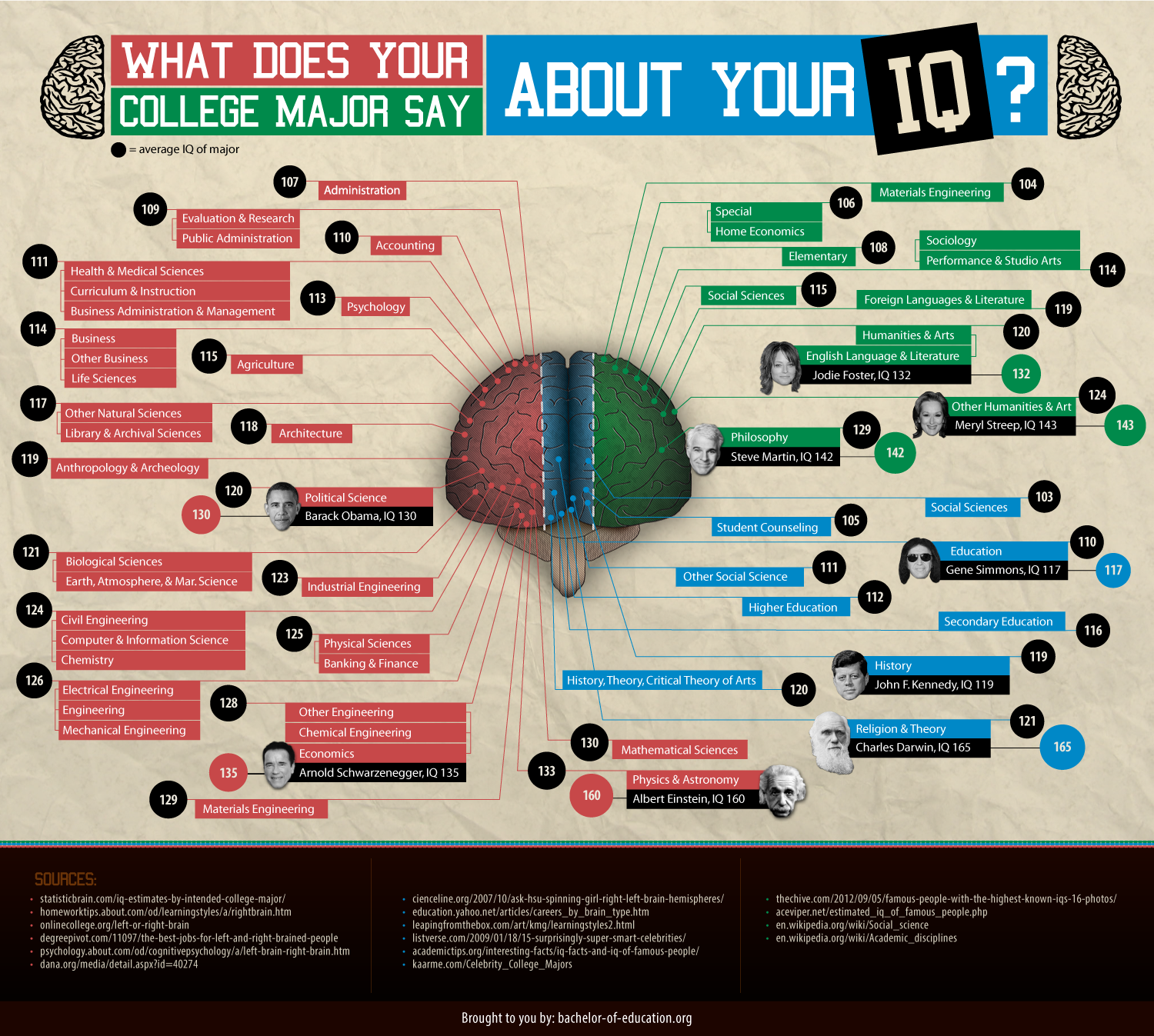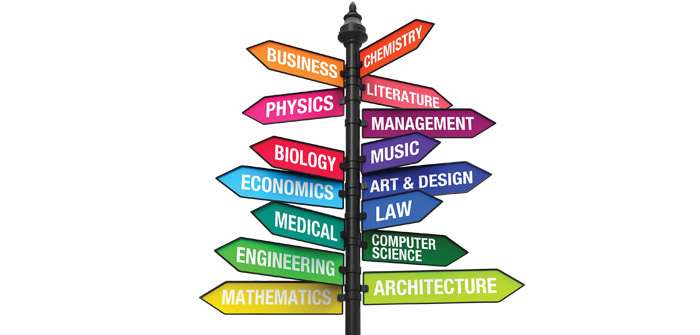How Do I Choose A Minor
A minor requires less time commitment than a major. This secondary concentration will not expect as many classes as a major. Therefore, you have the chance to explore more departments and areas of study if you decide to pursue it. Minors are optional. You can choose not to pick any or complete only one. Some universities allow students to pursue more than one minor. It is up to you.
When picking your minor, you can choose something that will complement your major or a completely different field of study. Whatever the case, remember that choosing your minor always comes secondary to your major. Many schools do not even require it, so you can continue without ever picking one. Or, if you do want to pursue a minor, you have plenty of time to decide the path you want to take.
What to consider when choosing a college minor?
With the many possible options, it can be challenging to select a minor. Some aspects to consider when choosing your minor are your studies and passions. Many students pick minors that complement their majors. This way, they can add depth to their studies. Lets say you are majoring in music, then some good minor options that will help you gain more experience and knowledge would be songwriting, jazz studies, or music recording. Alternatively, if you are pursuing a major in marketing, you might consider minoring in graphic design or international business.
Request information on BAU’s programs TODAY!
Do You Know How To Improve Your Profile For College Applications
See how your profile ranks among thousands of other students using CollegeVine. Calculate your chances at your dream schools and learn what areas you need to improve right now it only takes 3 minutes and it’s 100% free.
With so many majors and programs available, how do you know which one is the best pick for you? It can be hard to decide when youre still in high school, honing your interests and figuring out your career goals.
But, knowing what major youre interested in can play a role in determining the right college for you so its an important factor to consider. Thats why weve compiled a list of 200 college majors.
NB: Few schools offer all the majors on this list. Use our school-search tool to find colleges with the program that interests you.
What Is A College Major
A bachelor’s degree typically requires approximately 120 credit hours of course work, with an average semester course load of 15 credit hours spread over four years. A major is the main declared field of study during the degree coursework. For example, you might choose to focus on mathematics, engineering, business or some other course of study. Depending upon both the program of study and the university, most majors require 30 to 60 credit hours of coursework for completion.
Recommended Reading: How To Test Out Of College
Can I Major In Two Things At Once
Incoming college freshmen may feel overwhelmed when faced with declaring a major or minor fields of study. Many colleges allow students to declare or choose their major after taking their initial core classes. While a college diploma first designates the overall course of study like Bachelor of Arts or Bachelor of Science, the diploma and transcript also show a concentration in a focused area, or a major. A minor is a less intensive course of study that is secondary to the major designation.
The Return On Investment

In todays competitive job market, ROI is critical especially since college is so expensive. Often, you can find data on how many graduates from a particular program find employment within a certain period of time after graduating. You can also find statistics on the earning potential for specific majors. While this shouldnt be the sole determining factor in choosing a major after all, graduates of different majors often go into a variety of careers its certainly something to consider.
Don’t Miss: Apartments Near Cape Fear Community College In Wilmington Nc
How Should I Select A College Major
Selecting a college major can be a really overwhelming process! This article has some great advice.
The most important considerations are your personal fulfillment and future plans. Think long term: if you have a dream career, what major will help you get on the right track? Be sure to consider the growth prospects of the industry you are interested in as well.
Some students have dreams of attending more college after they graduate: law school, medical school, dental school, PhD programs, and more. If you have those aspirations, look into a major that fulfills the prerequisites for the program you are interested in.
Another important consideration is return on investment, or ROI. This statistic represents certain majors earning potentials and how likely students are to be able to earn enough money to make up for the cost of their college education.
Read Also: Penn Foster Vs Ashworth College
What Are The 13 Easiest Degrees To Get For Success
Enrolling in college shouldnt be hard and neither should earning your degree. However, for many students who apply to traditional and competitive campuses, they are faced with challenges like affordability and acceptability. Luckily, with the rise of online colleges, more students have been able to earn their degree! If youre questioning what is the easiest degree to get once you get accepted into college, then we have some ideas for you!
You May Like: Number Of Credits To Graduate College
Also Check: Softball Recruiting Tips
Consider The Course Requirements
While a degree in your major will indeed carry a lot of weight, many fields also have additional requirements beyond a major. Those who want to be teachers must also earn a license. Computer science students often must get certifications in different types of software. If you dont want to spend more time studying beyond your college years, be sure to choose a major that requires only a degree.
What Is An Option
Options are available only within your home faculty.
For example, only students within the Faculty of Engineering can choose Engineering options. An option provides depth to your degree and usually requires six to eight courses.
Waterloo offers six faculties: Arts, Engineering, Environment, Health, Mathematics, and Science.
Also Check: Selling Back School Books
Industrial And Manufacturing Engineering
How can factories and manufacturing facilities streamline their production processes to reduce inefficiency and waste? Thats the kind of question that industrial and manufacturing engineering programs equip you to tackle. You learn how to devise the most effective ways to use materials, machines, and workers to produce products or deliver services.
- Median salary: $81,452
Read Also: What Classes Do You Take Freshman Year Of College
What Do I Get From This
While you will certainly gain self-gratitude and praise from friends and family once you complete your degree, you also want to have a tangible goal within your ambitions. Some people pursue double majors to increase the chances of attaining their dream job by narrowing their education to a specific position.
Others do so as a back-up, for fear their first major wont work out. Another reason may be simply because you are genuinely passionate about two completely different disciplines and want to explore them.
You May Like: What Degree Do You Graduate College With
The Challenges Of Double Majors
While it can open up your career opportunities after graduation, there are definitely some challenges with double majoring.
- You need to decide to double major early in your college career to take all the classes you need for both majors.
- You won’t have a lot of space in your schedule for electives or classes that you find interesting if they don’t count toward your degrees.
- You can expect to have a very difficult schedule your junior and senior years because nearly all of your classes will be upper-level courses with heavy workloads.
Many College Students Switch Majors At Least Once

Declaring a college major helps set your future career in motion, but career trajectories change over time, both during college and long after.
According to the U.S. Department of Education, 33% of bachelor’s degree students switch their majors at least once. And even those who don’t often wish they had: A recent BestColleges survey found that 61% of college graduates would go back and switch their majors if they could.
Changing majors usually means taking additional classes and more time to graduate. The average bachelor’s degree recipient takes and pays for 135 credits about 15 more than they need to graduate.
Approximately half of all U.S. adults who pursued or completed a postsecondary degree would change at least one aspect of their education experience if they could do it all over again, including their major. Source: 2016 Education Consumer Pulse Survey, Gallup and Strada Education Network
Although switching majors can extend the graduation timeline, it doesn’t necessarily derail the college experience. A 2016 study suggests that students who change majors actually graduate at slightly higher rates than those who don’t.
Waiting to declare a major and switching majors is easy to do at many schools, and lots of students need the extra time and guidance to decide. With a growing number of first-generation students, more people are arriving at college uncertain of what they want to do.
Recommended Reading: Ashworth College Graduation Rate
Which Credential Do Employers Prefer
The perceived value of a double major or dual degree differs by employer. Some companies may not be overly impressed by a double major, while others may only value dual degrees if they are at the graduate level and help workers qualify for industry certification.
Liberal arts undergraduates who earned a second major in a STEM field make an average of almost 10% more than their single-major counterparts.
In some instances, having a degree with a double major may lead to a salary advantage. For example, an analysis published by The Conversation revealed that liberal arts undergraduate students who earned a second major in a STEM field went on to make an average of 9.5% more than their single-major counterparts.
Your academic credentials let you fulfill minimum hiring criteria and help you tell a story that can differentiate you from other applicants however, your employability and salary potential largely hinge on your industry, applicable skills, and relevant work experience.
The Difference Between Major And Minor
When it comes to the debate major vs. minor, the first difference between the two is their level of importance for your studies. Your major will decide your primary field of study, whereas the minor is a secondary concentration.
Then, although it varies from school to school, generally, minors require fewer . Once everything is done, your major is the only one that will be displayed on your graduation certificate. You can still add the minor to your resume though.
Majors and minors are meant to provide a well-rounded foundation for you to advance your career based on your abilities and interests. It is both a curse and a blessing to have so many options to choose from. But, having the chance to switch your picks should make the process less stressful.
It doesnt matter how early you pick your major and minor or how many times you switch them, as long as you just do not give up and continue trying.
Recommended Reading: College Hill Season 3
What Is A Major
A major is the subject that’s the main focus of your degree.
Most of your courses will be in your major and you’ll graduate with a degree in that major, e.g., Bachelor of Science in Public Health, Bachelor of Arts in History, Bachelor of Environmental Studies in Geomatics. Major and program are often used interchangeably. View Waterloo’s majors/programs.
Con: You May Not Graduate In Four Years
More classes and workload can mean you have to push back your graduation date. If youre looking to only spend four years in college, whether for personal or financial reasons, this may not be the correct choice for you. It can be done, but requires very specific planning and some luck when it comes to course scheduling. Talking to your adviser should be your first course of action.
Don’t Miss: What Does The E Mean In Apple Music
How To Select Your College Major
You Can Change Your Mind
If youre not sure about your college major while youre in high school, dont worry. Most students switch their major during college. Even students who think they are sure about what they want to major in often change their mind.
Shawna, a college sophomore, began college as a physics major but switched to electrical engineering. During her first semester, she discovered that college physics was all the things about my physics class in high school that I didnt like. And my engineering class was all the stuff I actually did like.
Also Check: Tall Dorm Beds
What Is A Dual Degree
Highly motivated students can enroll in a dual-degree program to earn two separate credentials, such as a bachelor of arts and a bachelor of fine arts or a bachelor of science and a master of business administration.
The two degrees are typically distinct but may complement each other based on a student’s career objectives. For example, some universities offer dual-degree tracks that award an MBA and a master of science in information systems, preparing graduates for careers as IT managers and executives.
While degree requirements differ depending on the dual-degree program, they typically include some course overlap that reduces the total number of credits a student must earn. In general, learners must complete at least 150 credits to earn two bachelor’s degrees or a bachelor’s and a master’s degree, and 60 credits to earn two master’s degrees. Students cannot usually create their own dual-degree programs and must instead choose from predefined options.
College Major Vs Minor Degree Whats The Difference Between A College Major And College Minor

As the name suggests, the difference between a college major vs. minor is the breadth of study. A major is the core focus of an undergraduate program, with 36 credits in courses that meet accrediting standards for a specific area, such as psychology.
In contrast, a minor is made up of less than 20 credit hours and often is more related to your personal interests, such as a minor in a foreign language while a major could be in chemical engineering.
You May Like: Ashworth College Vs Penn Foster
Benefits Of Pursuing A Dual Degree
A dual degree program, whether at the bachelorâs level or bachelorâs-to-masterâs level, gives you the distinction of graduating with two degreesâusually in less time than it would take to earn each one individually. Moreover, because many dual degree programs are built on related subject matter, you can deepen your knowledge and potentially develop new skills.
What Is The Difference Between A Major And A Minor
Majors are primary fields of study, and minors are secondary concentrations that may or may not be related to your major. Although the two can be similar, they do not need to be.
Plenty of people choose a minor later on in their academic career. This minor can be based upon an area of interest that they discovered, or a way to complement their existing major and possibly make them more attractive in the workplace.
Although you wont get a degree for your minor, it may still be helpful to have one on your record because it shows that you were willing to put in the work to learn multiple concentrations and that you may have range and focus as a person.
Don’t Miss: Colleges That Accept 2.5
Can Your Major And Minor Be Completely Different
Some people choose minors that complement their majors, and some decide to go with minors that are entirely different than their primary field of study.
Editorial Listing ShortCode:
If you are majoring in a more vague field, its helpful to have a minor that can fine-tune your particular skill set. Alternately, theres nothing wrong with choosing a minor that youre passionate about, even if it doesnt reflect your major.
Having an unrelated minor might show your range and appeal to a variety of employers.
What Is A College Major Definition List How To Choose A Major And More
Whats your major?
This question can build anxiety in late high school and early college students more than any other. Choosing a major can seem like a task more daunting than even choosing a college and even a spouse. For many students, a major seems like a long-term commitment, one that will determine the course of not only their college years, but even their future career and family lives.
While your major can certainly influence all those other parts of life, it need not be so scary or limiting. Not only can college students change their major , but the process of determining a major can be an exciting journey of self-discovery and personal affirmation.
Because majors matter most in your last years of college, the process of choosing a major, and even your first classes in that course of study, can be an exercise in constructive dreaming. As you think about what you want to study in college, youll start deciding what you want to get from your college experience. Youll set your goals and expectations for the next few years of your life. Youll even begin to see yourself as an adult in your career.
In other words, declaring a major is your chance to tell the world who you want to be. Even if you end up changing your major or entering a different career, the major you initially choose will always be a statement of purpose regarding your values and goals.
Read Also: Miller Motte College In Greenville Nc